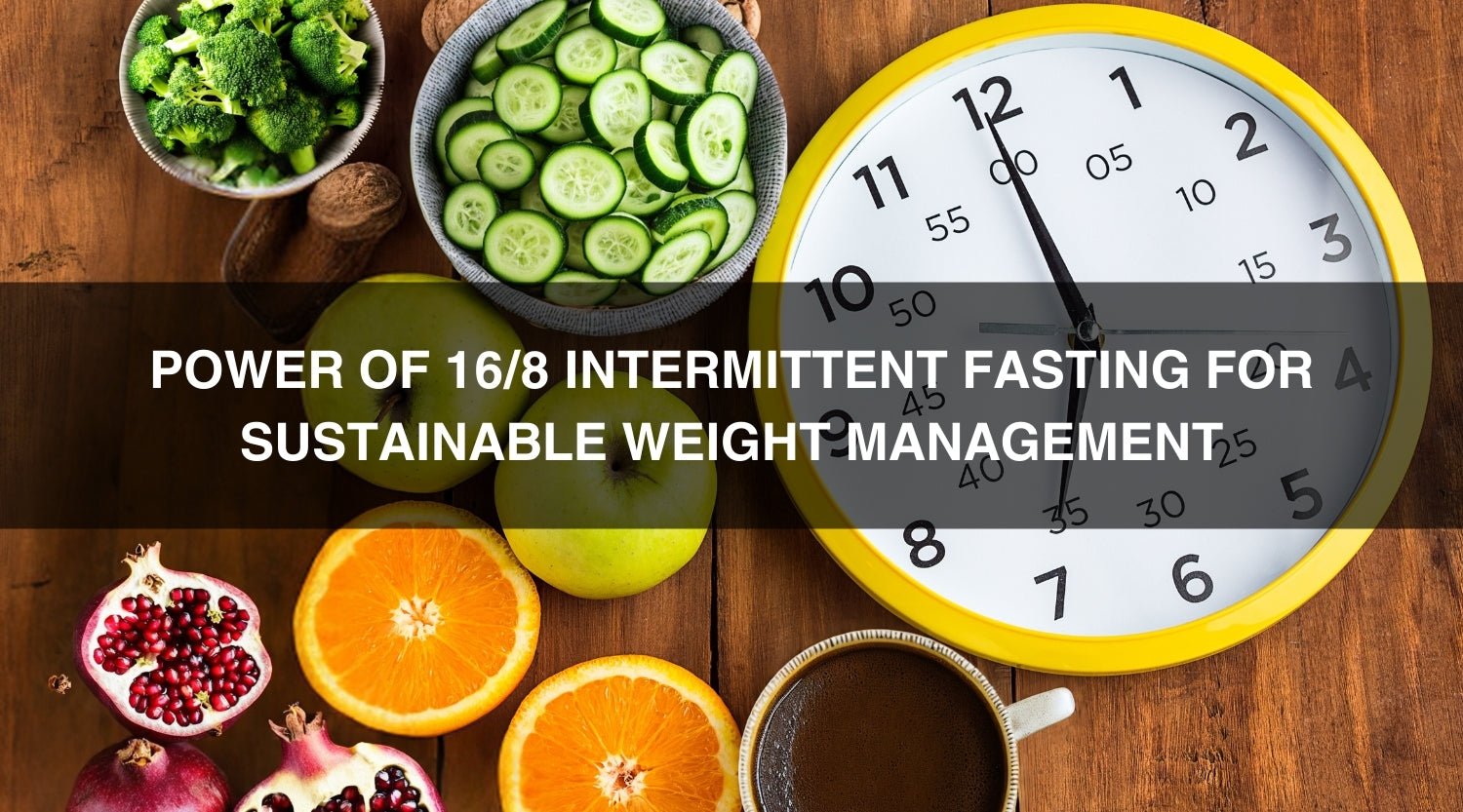
Unlocking the Power of 16/8 Intermittent Fasting for Sustainable Weight Management
Understanding the 16/8 Method of Intermittent Fasting
What Is the 16/8 Method?
The 16/8 method is a fasting regimen that divides the day into two periods. For 16 hours, you fast. This means no food, only water, tea, or coffee without sugar. For the remaining 8 hours, you eat all your meals. This cycle repeats every day. The aim is to give your body a break from constant digestion. During fasting, your body can repair cells and use stored fat for energy. Many find this method an easy-to-follow and flexible approach to intermittent fasting.
The Science Behind the 16/8 Approach to Fasting
The 16/8 fasting method is anchored in science. It aligns with our body's circadian rhythm. When we fast for 16 hours, our body turns to stored fat for energy. This switch in fuel source may aid weight loss. It can also improve insulin sensitivity. That means better control over blood sugar levels. Fasting for 16 hours gives the body time to repair at the cellular level. It may also reduce inflammation. These effects can lead to better overall health.
The Health Advantages of the 16/8 Intermittent Fasting Plan
Boosting Your Health with Structured Fasting
Embracing a structured fasting regimen like the 16/8 method can fuel various health perks. It aligns your eating pattern with your body's natural rhythms. This timing can help regulate key hormones involved in hunger and fullness. It may also enhance the body's ability to repair and renew at a cellular level. By fasting for 16 hours, you give your system an extended break from digestion. This break can lead to better nutrient absorption during your eating window. Moreover, it encourages a mindful approach to meals, reducing the risk of overeating. Guided by this pattern, many find improvements in energy and focus. To truly boost health with structured fasting, consistency is crucial. Adapting your lifestyle to include regular fasting periods can lead to long-term benefits. It's not just about losing weight; it's about nurturing a healthier, more resilient body.
How the 16/8 Method Supports Weight Management
The 16/8 method is a powerful tool for weight control. It limits eating to an 8-hour window. This approach leads to fewer calories consumed overall. It also helps the body burn fat more efficiently during fasting periods. By cycling between periods of eating and fasting, metabolism may improve. This can increase fat loss without the need to count calories. Studies show that it can also curb hunger and aid in making healthier food choices. The 16/8 method is a natural fit for many, making weight management sustainable.
Potential Improvements in Metabolic Health and Well-being
The 16/8 intermittent fasting plan goes beyond weight control. It may boost your overall metabolism. This can help fight against diabetes, heart issues, and other metabolic diseases. It is thought to enhance insulin sensitivity as well. This means your body can control blood sugar better. It can lower inflammation, a root of many health woes. Fasting can also boost the repair of cells. This can slow aging and prevent disease. In short, your body works more efficiently. You feel healthier and more energized.
Best Practices and Tips for Successful 16/8 Intermittent Fasting
Setting Realistic Goals and Expectations
Embarking on the 16/8 intermittent fasting journey begins with setting achievable goals. It's vital to tailor expectations to your lifestyle and health status. Recognize that weight loss or improved health won’t happen overnight. Aim for gradual progress rather than quick fixes. Consider consulting with a healthcare professional to ensure your fasting plan aligns with your needs. Start by planning how to integrate the 16-hour fasting window into your daily routine. This will help you stay committed and track your successes. Remember, success comes from consistency and patience.
Step-by-Step Guide to Implementing the 16/8 Plan
Start your 16/8 intermittent fasting journey with these simple steps:
- Choose Your Fasting Window: Select an 8-hour period to eat, such as 12 PM to 8 PM. For 16 hours, you will fast.
- Plan Nutritious Meals: Focus on healthy foods. Include proteins, veggies, and whole grains in your eating window.
- Stay Hydrated: Drink water, herbal teas, and black coffee while fasting. Avoid sugar and milk.
- Ease Into It: Begin with a shorter fasting period. Gradually increase to 16 hours.
- Track Your Progress: Use a journal or app to record meals and how you feel.
- Listen to Your Body: Pay attention to hunger signals and adjust times if needed.
By following these steps, you can set yourself up for success with the 16/8 plan.
Common Challenges and How to Overcome Them
Embarking on the 16/8 intermittent fasting journey can pose challenges. Here’s how to tackle them:
- Hunger pangs: Drink water or herbal tea to curb appetite during fasting hours.
- Social events: Plan ahead by scheduling gatherings during your eating window or choosing low-calorie beverages.
- Energy dips: Ensure your eating periods include balanced meals to sustain energy levels.
- Motivation: Set small, achievable targets and celebrate progress to stay motivated.
- Timing: Use a fasting tracker app to stay on schedule and monitor your fasting hours.
Remember, it's normal to face hurdles. What matters is how you handle them.
Share
